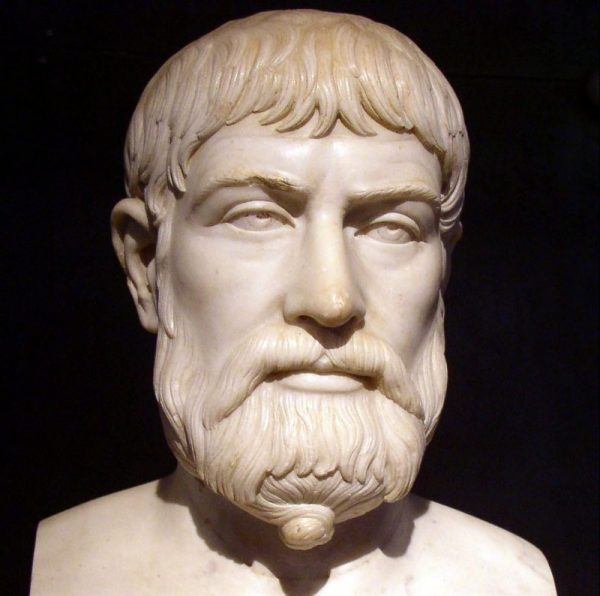
..but, eternally having sunshine in equal nights and in equal days, the good receive a less toilsome life, not vexing the earth or the water of the sea with the strength of their hands to achieve a meagre sustenance; instead, in the presence of the honoured Gods, those who delighted in keeping their oaths pass a tearless existence…* So recited Pindar, in his Olympian Ode 2, composed to honour the Sicilian Greek Theron after his victory in a chariot race during the Olympic Games of 476BCE.
This is just before the Athenian Golden Age, and Pindar is extolling and extemporising on Theron’s victory in the philosophy of the time as well as that of his patron, which is broadly Pythagorean. Pythagoras tried to reconcile religious belief and reason, and the themes of Olympian 2 include Time – Chronos, and Metempsychosis – the transmigration of souls.
So the (just, good) mortals live with the gods on The Isles of the Blessed in perpetual equinox!? I’m not sure that is my choice of nirvana, to mix cosmology, but I look forward to delving a bit more into the early history of equinoxes soon.
james meek says:
Great Martin- enjoyed that, particularly as Simon translated it!! I’m struggling with ideas about religion, reason and right myself at present. Will tell you more anon.
Martin Nelson says:
I will pass that on to Simon, James – thanks. And let’s see if our struggles coincide…
Philip Creasy says:
Funnily enough I think a bit of regular variation in noxes is not necessarily a bad thing. I once did a world cruise from Jan to April, and because of the itinerary missed out on the early spring that year and despite all its typical cold and dankness I still sort of missed it!
Martin Nelson says:
I agree Philip! The isles of the Blessed are not for me either. I lived a year in Sri Lanka, where micro variation in shadow length, humidity etc have to do for seasonal variation. we have it rich here – especially when the polar vortex goes AWOL…